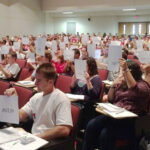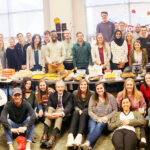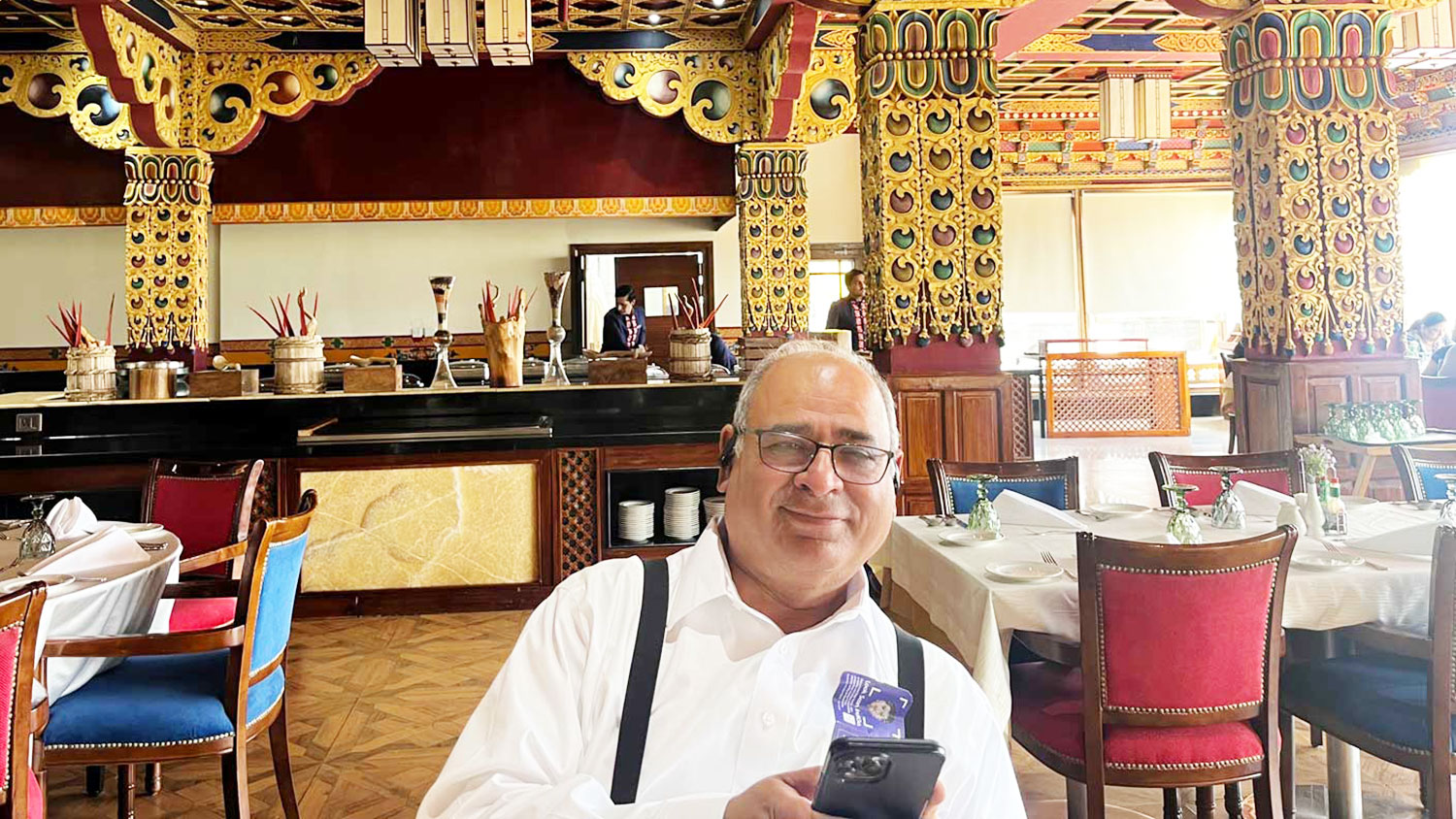Professors of Practice Drive Learning and Innovation
The Poole College of Management creates high-impact learning opportunities for students that prepare them for success, wherever they land. The real-world experience of Poole’s professors of practice helps make it happen.
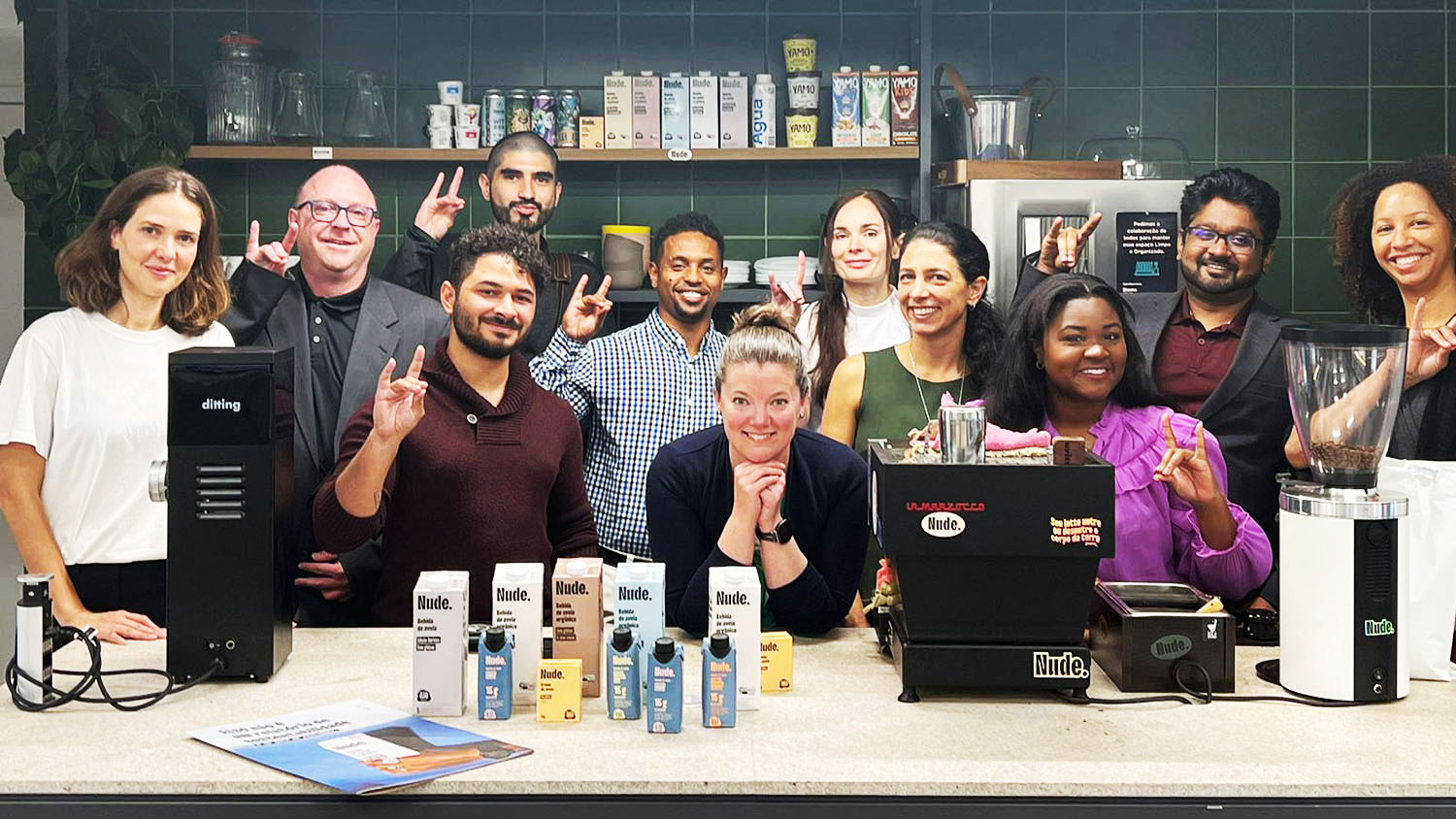
By Sam Gunnells
We have a saying in Poole College: “Our graduates don’t just leave with a diploma — they leave with a resume.”
This resume-shaping experience often comes from working with our professors of practice, who bring decades of industry know-how directly into our classrooms. From auditing and accounting to social governance and strategic planning, these professors expose students to the real challenges they’ll face in their careers, while giving our college hard-earned insights to drive the next wave of marketplace innovation.
“Our graduates don’t just leave with a diploma — they leave with a resume.”
Here are just a few of the ways our professors of practice create high-impact learning experiences that prepare our students for success — and prepare the world of business for what’s coming next.
Bonnie Hancock: Teaching the Soft Skills for Success
Bonnie Hancock’s efforts to engross students in the principles of financial management, risk management and corporate governance are aided by her wealth of high-octane experience, including years spent as the president of Progress Fuels, a subsidiary of Progress Energy. Since then, Hancock has spent more than two decades as a Poole College faculty member.
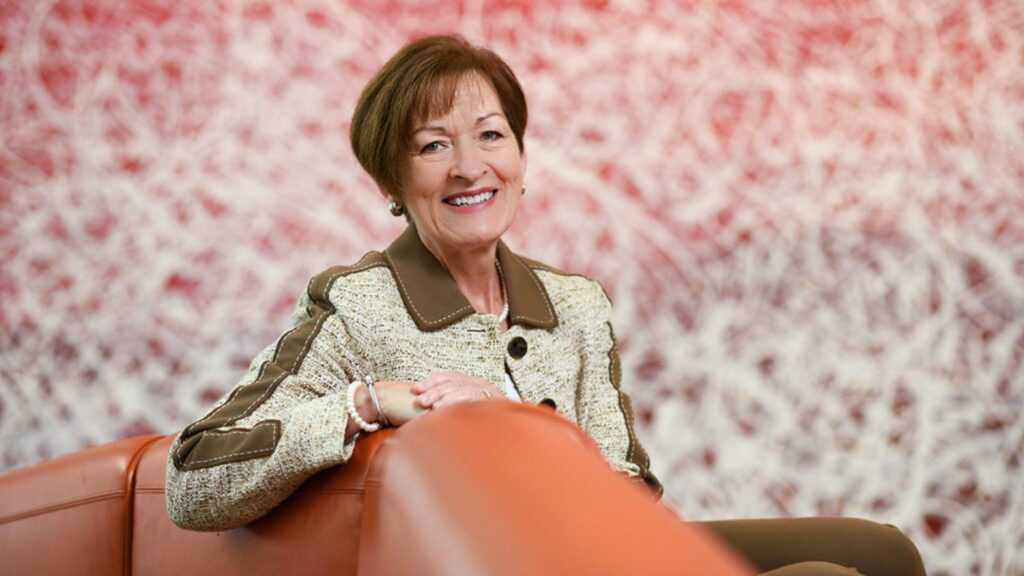
“Business classes often give you a very theoretical, picture-perfect view of how business should work. But in the real world, it gets messy, and that’s where soft skills come in. I try to open students’ eyes to that.”
Formerly the executive director of Poole’s Enterprise Risk Management Initiative, Hancock now directs the bulk of her teaching toward students in the master of accounting program. In her class on applied financial management — a required course that Hancock refers to as Poole’s “CFO course” — she uses her industry experience to give students a broad view of the fiscal nuances all businesses must navigate.
“The course originated more than 20 years ago,” said Hancock. “Recruiters told us, ‘You know, today’s accounting students know their debits and credits, but they don’t always understand how businesses really operate or the bigger picture of business.’”
For the course’s capstone project — involving mergers and acquisitions — Hancock keeps an eye out for timely examples she can use for inspiration. She might use data from a corporate acquisition garnering media attention to model a team-based activity, with one team representing the acquiring company and the other having to decide whether to sell.
“The class, as the target company’s shareholders, will have to decide if the acquiring company offered enough money, if it was the right currency or if there was any risk associated with closing the deal,” said Hancock.
Since the world of business moves so quickly, Hancock focuses on developing her students’ soft skills — communication and teamwork.
Since the world of business moves so quickly, Hancock focuses on developing her students’ soft skills — communication and teamwork — and continuing to adapt her curriculum to current industry needs so that she’s always teaching the most in-demand skills. She believes that team-based exercises grounded in real-world data give students invaluable opportunities to put their heads together to craft winning business arguments.
Hancock believes that team-based exercises grounded in real-world data give students invaluable opportunities to put their heads together to craft winning business arguments.
“Business classes often give you a very theoretical, picture-perfect view of how business should work,” said Hancock. “But in the real world, it gets messy, and that’s where soft skills come in. I try to open students’ eyes to that.”
Beth Ritter: Bringing HR Leadership to Life
Beth Ritter, a professor of practice focused on human resource management, brings her extensive resume in HR leadership to her work in Poole. As former senior vice president of HR at Burt’s Bees, she was part of a leadership team that worked to create a strong workplace culture for its employees.
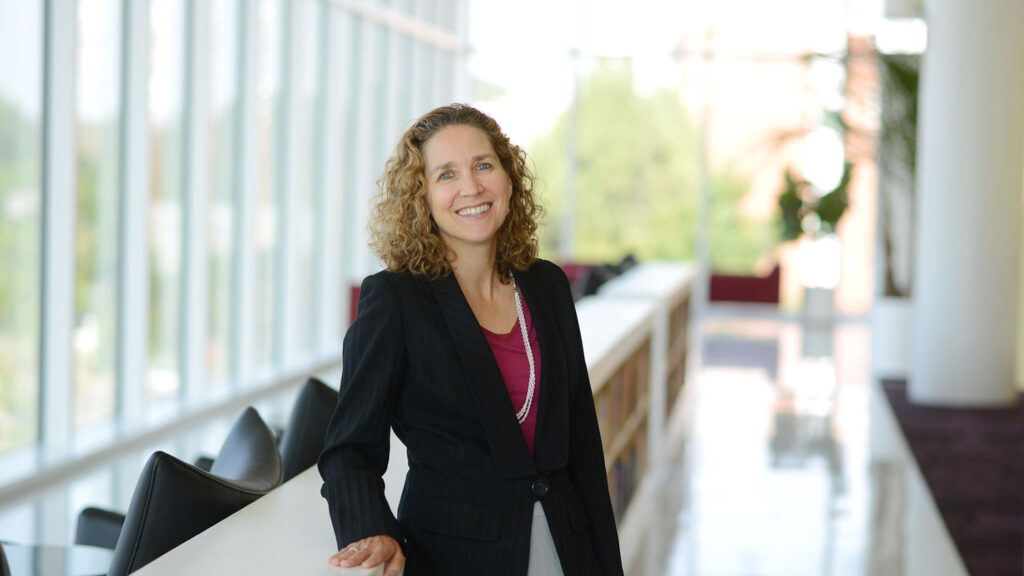
“Students come into class with some interesting and often negative perceptions about what HR is. I get to influence that to help them understand that there is a science and a process focused on people behind the HR programming.”
At Poole, Ritter instructs undergraduate students pursuing degrees with an HR concentration, equipping them with a fundamental knowledge of HR principles, while she immerses her graduate students in courses centered on HR leadership. A believer in the importance of strong relationships, Ritter — like many Poole faculty — leverages her pre-established networks to connect her students with industry partners in the classroom.
A believer in the importance of strong relationships, Ritter — like many Poole faculty — leverages her pre-established networks to connect her students with industry partners in the classroom.
“During COVID, I did an exercise with my employee relations class where we brought in contacts from a local hospital,” said Ritter. “With their guidance, students got to think about the real-world considerations for a business trying to show recognition for essential employees during a pandemic — like how to do that when half your workforce is at home, or when you may not want your employees gathering to eat or when you cannot offer time away from work.”
Ritter emphasizes that success for many businesses often hinges on whether they can sustain a people-centered culture as they grow and evolve.
Ritter emphasizes that success for many businesses often hinges on whether they can sustain a people-centered culture as they grow and evolve. By bringing in professionals to help simulate everyday scenarios students are likely to face — like a contentious meeting between employees — and giving them the chance to role-play those scenarios, Ritter brings HR leadership to life for her students and influences them to broaden their perceptions about what constitutes HR.
“Students come into class with some interesting and often negative perceptions about what HR is,” said Ritter. “I get to influence that to help them understand that there is a science and a process focused on people behind the HR programming.”
Scott Showalter: Growing Students Past Their Comfort Zones
As a professor of practice in accounting and director of Poole’s Master of Accounting (MAC) program, Scott Showalter draws on years of experience involving both private-sector and public-sector organizations. In various leadership roles with multinational accounting firm KPMG, he served as a technical adviser and lead partner for many of the company’s largest and most complex public-sector clients.
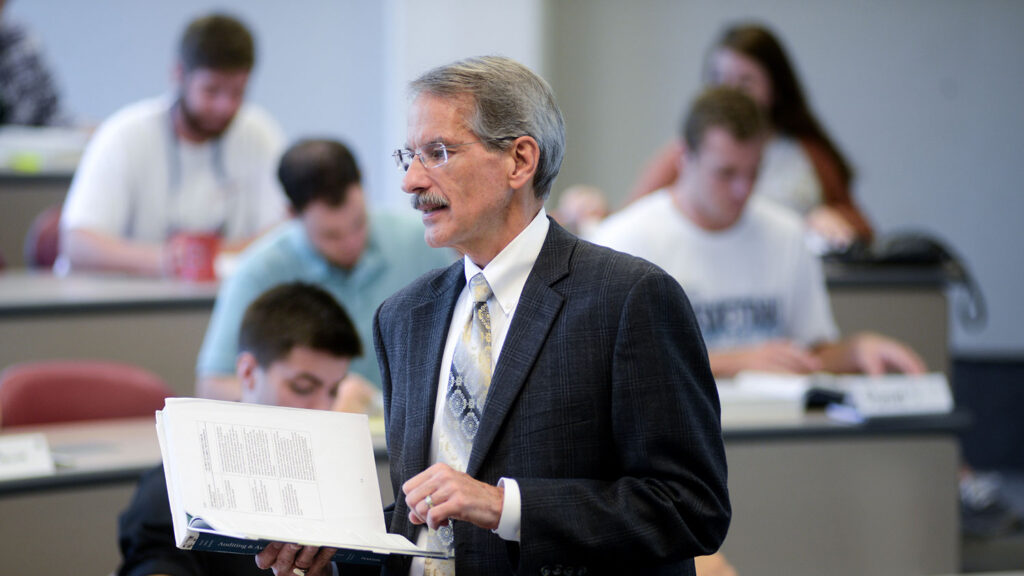
“I teach students that your career is going to be a series of challenges, and sometimes you’ll fail, but you can grow through those challenges and failures.”
Showalter believes that pushing the soon-to-be accountants and auditors under his tutelage past their comfort zones and out into the field is one of the best ways to broaden their professional acumen. In past semesters, he’s challenged his students to audit the accuracy of NC State’s yearly Sustainability Report. Under the guidance of real-world environmental, social and governance consultants, these students met with staff and faculty from across the university to collect the data they’d need and lay the groundwork for the auditing process.
Showalter believes that pushing the soon-to-be accountants and auditors under his tutelage past their comfort zones and out into the field is one of the best ways to broaden their professional acumen.
“Projects like that give students the opportunity to gain technical experience, of course, but they also learn how to deal with people,” said Showalter. “When they leave here and start working, they’re going to have to be able to deal with all different kinds of clients.”
Showalter places special emphasis on exposing students to leaders at the highest levels of the accounting profession. At a recent orientation, incoming MAC students heard from a senior partner with Deloitte who’d authored a book on management. They also worked with MAC alumna and assurance professional Jamelia Livingston in a role-play exercise around diversity, equity and inclusion in the workplace. This early engagement, Showalter says, is vital to prepare students to work with — and, when needed, to challenge — those above them in a hierarchy.
“In business, you have to learn to challenge people in a professional way, even people who might be your parents’ age,” said Showalter. “I teach students that your career is going to be a series of challenges, and sometimes you’ll fail, but you can grow through those challenges and failures.”
Jessica Yinka Thomas: Shaping Tomorrow’s Changemakers
Jessica Yinka Thomas began her career engineering new products for an educational toy company before transitioning to lead social initiatives at universities and economic development corporations. Today, she brings more than 15 years of professional experience in social innovation, sustainable enterprise and business development to her role as an associate professor of practice and director of Poole College’s Business Sustainability Collaborative.
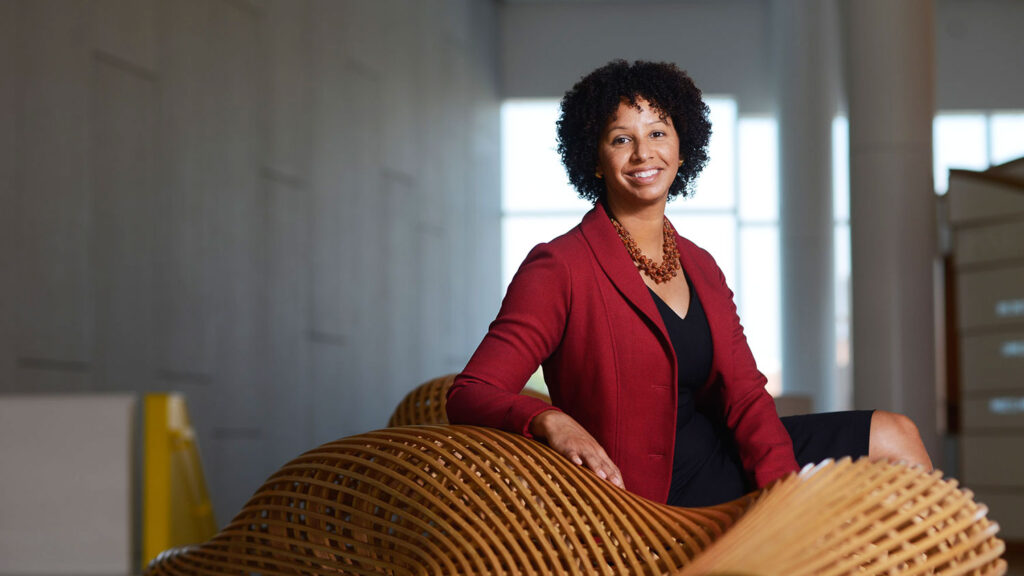
“I try to teach them that, in any role, in any company, you can act as a changemaker.”
Within Poole, Thomas’ focus ranges from working with faculty to develop new curriculum and sharing research that informs industry to connecting sustainability-minded students with internships and career development opportunities. A common thread running through her work, inside and outside the classroom, is her belief in the power of business to drive positive change.
A common thread running through Thomas’ work, inside and outside the classroom, is her belief in the power of business to drive positive change.
“Students sometimes come in thinking, ‘Oh, I can either start my own venture or I can sell out and go work for a multinational corporation and not really live my values,’” said Thomas. “I try to teach them that, in any role, in any company, you can act as a changemaker.”
In one graduate-level study abroad course, Thomas’ students learn about unique issues of sustainability confronting businesses in emerging markets. They then spend nine days in Brazil, working with established B Corporations to analyze their environmental impacts. The students leverage the B Impact Assessment — an in-depth questionnaire that companies use to quantify and benchmark their social and environmental progress — to make recommendations to the companies about what they’re doing well and how they might improve.
“Today’s students really connect with that concept — of holding yourself accountable in business.”
“Today’s students really connect with that concept — of holding yourself accountable in business,” said Thomas. “There’s just so many opportunities for businesses and business leaders to make positive impacts, above and beyond their economic impacts.”
As executive director of B Academics, Thomas leads a global community for educators researching and teaching about B Corporations and the importance of business in driving social change. It’s just one of the many ways professors of practice are innovating to keep Poole College — and its partners — moving forward.
“There’s just so many opportunities for businesses and business leaders to make positive impacts, above and beyond their economic impacts.”
- Categories:
